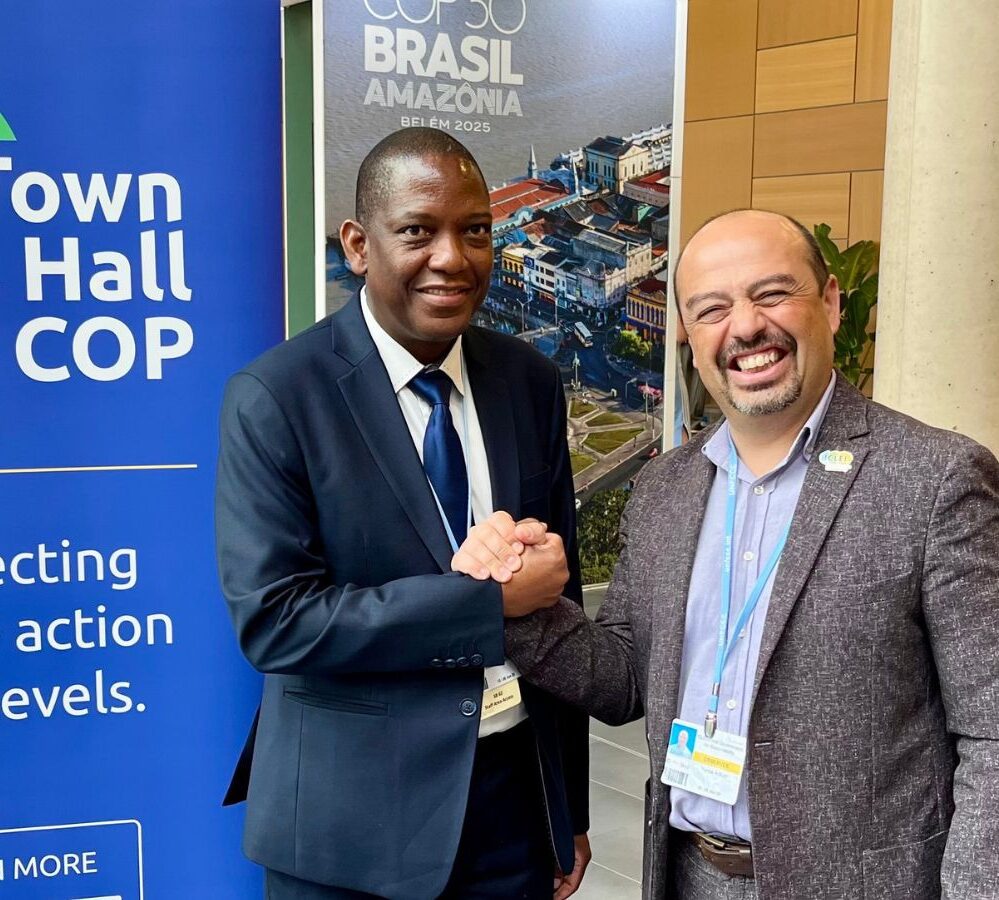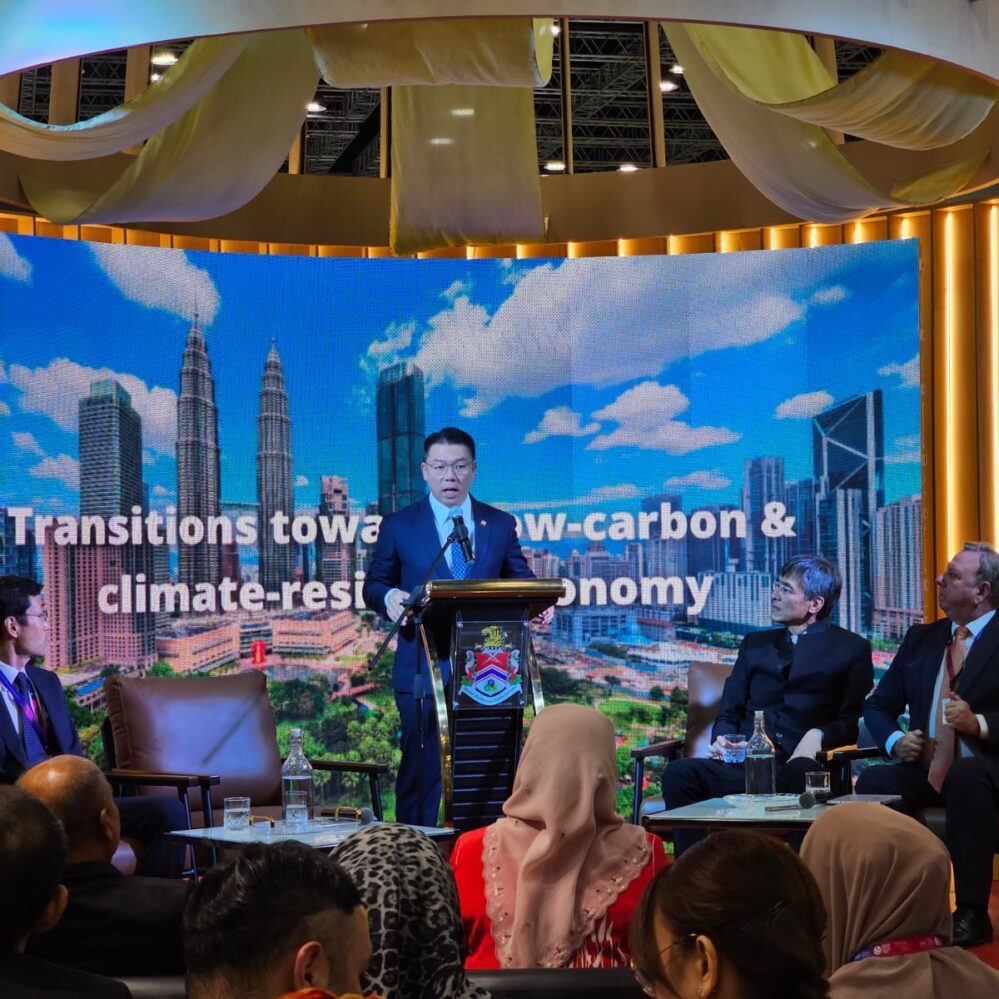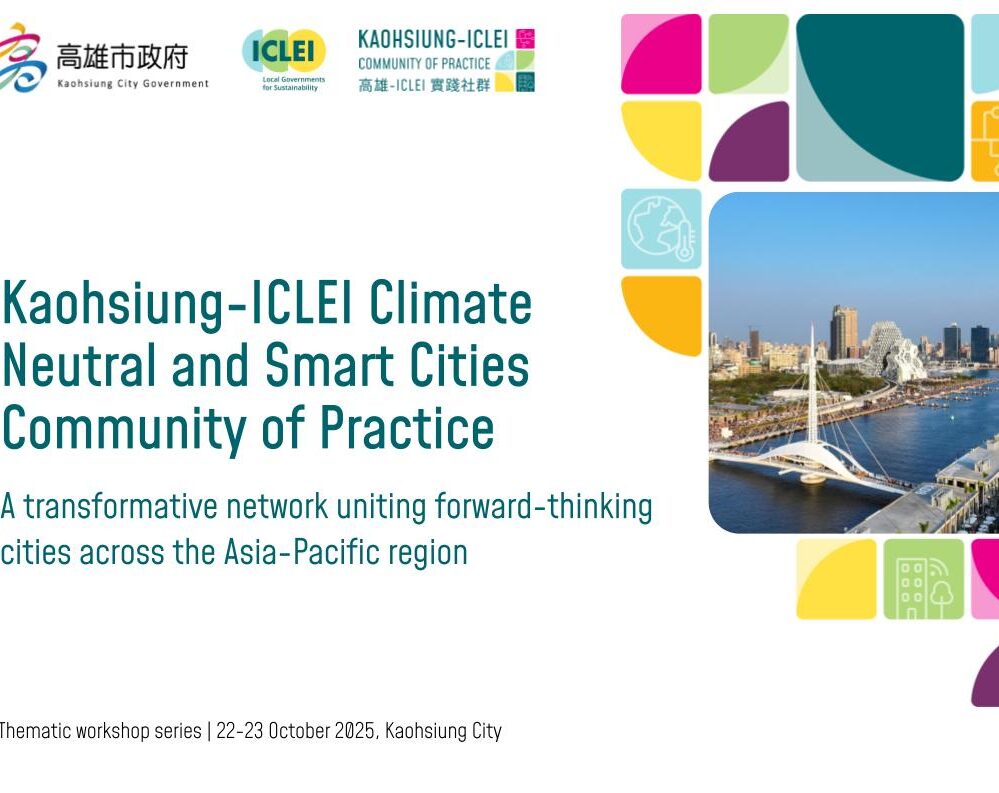ICLEI’s Town Hall COP Initiative has emerged as a powerful way to make climate action truly locally led, transformation-oriented and, most importantly, nationally relevant.
Since its launch in early 2025, the initiative has quickly gained traction. More than 50 Town Hall COPs have been hosted by local governments and civil society organizations across 25 countries on six continents, gathering over 13,500 participants and even being recognized as an official model for multilevel action in countries such as South Africa, Malaysia, and Kiribati.
Aligned with the Mutirão call for collective action, Town Hall COPs are demonstrating that meaningful change can be driven from the ground up. ICLEI is bringing these exciting results to COP30 and sharing lessons from communities across the globe on how Town Hall COPs are ensuring that local climate dialogues can shape national climate action.
This is the spirit that converged at the Cities & Regions Hub on 13 November, where a dedicated event brought together leaders from all levels of government and experts to share their insights on the Initiative.
The event featured leaders across the globe, including María Victoria Flores, Minister of Environment and Circular Economy of Córdoba Province, Argentina; Moira Were, Mayor of Onkaparinga, Australia; Kenalemang Phukuntsi, Mayor of Tswelopele Local Municipality, South Africa; and Bruna Cerqueira, General Coordinator of the COP30 Action Agenda.
“This is more than consultation—it is co-creation. It is a blueprint for multilevel governance that other countries can replicate to make climate ambition inclusive, actionable, and locally owned,” stated Mayor Phukuntsi. “As we stand here at COP30, let us remember: The fight against climate change will not be won in conference halls alone. It will be won in town halls, schools, villages, and cities—where people come together to act,” she reflected.
First-hand contributions from leaders on stage underscored the vital role of subnational leadership in driving climate ambition, showing how cities and regions are advancing innovative, locally grounded solutions that support national and global climate goals.
New report launched: How African Town Hall COPs are shaping local to national to global climate governance
In the lead-up to COP30, between August and October 2025, 18 Town Hall COPs were convened across six Sub-Saharan African countries – the highest number in any region globally. These dialogues generated rich, actionable lessons, now captured in the new report “Convening Town Hall COPs across Sub-Saharan Africa,” launched by ICLEI on 13 November at COP30.
The report distills several key insights. Collaboration with city networks, national governments, and local government associations is a powerful driver of multilevel governance. In South Africa, where the national government formally endorsed the Town Hall COP model, nine deeply meaningful Town Hall COPs established a direct pathway between local and national governments for NDC implementation and feedback – a world first.
Across the region, African cities identified waste as their number one priority. Systems thinking also emerged as essential: Cities consistently emphasized the interlinkages between livelihoods, renewable energy, and nature-based solutions, and the importance of managing trade-offs wisely. In addition, youth and community voices were recognized as vital.
These African Town Hall COPs have been made possible through strong partnerships between ICLEI and the South African Local Government Association, the Rwanda Association of Local Government Authorities (RALGA), and other partners across the continent. Together, they are building on the success of the 2025 iteration as part of a Roadmap to COP32, to be hosted on African soil.
Town Hall COP as a strategy to engage with national government
The LGMA Constituency has issued the Compendium of National Mobilization Strategies as a complementary guidance document to the LGMA Joint COP30 Position and the Guidance Document for Negotiators. This resource strengthens collaboration between all levels of government, highlighting how local and regional governments are shaping more ambitious and inclusive national climate plans and showcasing practical examples of multilevel cooperation already driving implementation worldwide.
Among these, the Town Hall COP model is featured as a key approach to connect local communities to country-level plans, linking local priorities with national climate commitments and demonstrating how climate ambition is delivered in practice at the local level. Accordingly, Town Hall COP outcomes can feed national stocktaking processes, strengthen CHAMP commitments, and inform and support the implementation of the next generation of NDCs.
These connections were brought to life at the event “A new era of climate action through multilevel collaboration,” under COP30’s Thematic Action Agenda Axis 4: Cities, Infrastructure & Water, on 12 November. The session showcased real stories of how aligning local innovation with national strategies can unlock transformation, including: Strengthening the urban dimension of NDCs through multilevel collaboration through CHAMP and SURGe.
In the segment “Rallying community support for NDCs,” Dorah Marema from SALGA underscored the importance of South Africa’s endorsement of the Town Hall COP Initiative, highlighting its commitment to bringing NDC consultations to the local level through this platform. She emphasized that this unprecedented step marks a real shift toward shared ownership of climate action between national and local governments.
Pacific Local Action Agenda: Elevating inclusion in urban climate action
On 12 November at COP30, Australia’s National Pavilion hosted a high-level workshop showcasing how locally led Town Hall COPs are advancing inclusive, community-driven contributions to national and global climate goals.
Grounded by opening remarks from Philip Yang, COP30 Special Envoy for Urban Solutions, and featuring case studies from the City of Adelaide, Greater Sydney, and Kiribati, the session highlighted multilevel collaboration, Indigenous leadership, and intergenerational participation as essential to NDC 3.0 development.
A notable example is Kiribati, which hosted the first Town Hall COP in the Pacific region. Held in Tarawa in a traditional maneaba meeting house, reflecting Kiribati’s community governance system, the event brought together the President of Kiribati, several Ministers, the Australian and New Zealand High Commissioners, and community leaders, demonstrating high-level multilevel collaboration.
Honourable Ruth Cross Kwansing, Minister for Women, Youth, Sport and Social Affairs of Kiribati, stressed that climate action must be “inclusive, locally driven and anchored in the realities of our people.” She also celebrated the Town Hall COP’s adoption of the Ikarekebai Declaration, calling for “collective responsibility” in addressing the climate emergency from both major emitters and Kiribati’s communities, and highlighting urgent needs such as food and water security, coastal protection, resilient housing, and cultural preservation.
In addition, Lord Mayor Jane Lomax-Smith highlighted Adelaide’s Town Hall COP, which convened South Australian council leaders, noting that “Cities are the essential delivery arm of climate policy, and subnational collaboration is key to achieving national goals.”
Daring Cities 2025 supports Town Hall COPs
Daring Cities 2025 spotlighted Town Hall COPs as a model to accelerate local action and strengthen NDC implementation by bringing together governments at all levels. In-person and online sessions brought first-hand insights from host communities, with discussions ranging from how to engage national governments and meaningfully include youth to how to deliver effective community communications.
Participants shared key opportunities and challenges for scaling Town Hall COPs. These insights are captured in the Daring Cities 2025 Compendium of good practices and resources.
Watch this video recapping the Town Hall COPs in 2025 and explore our playlist with insights from the communities that hosted them.





